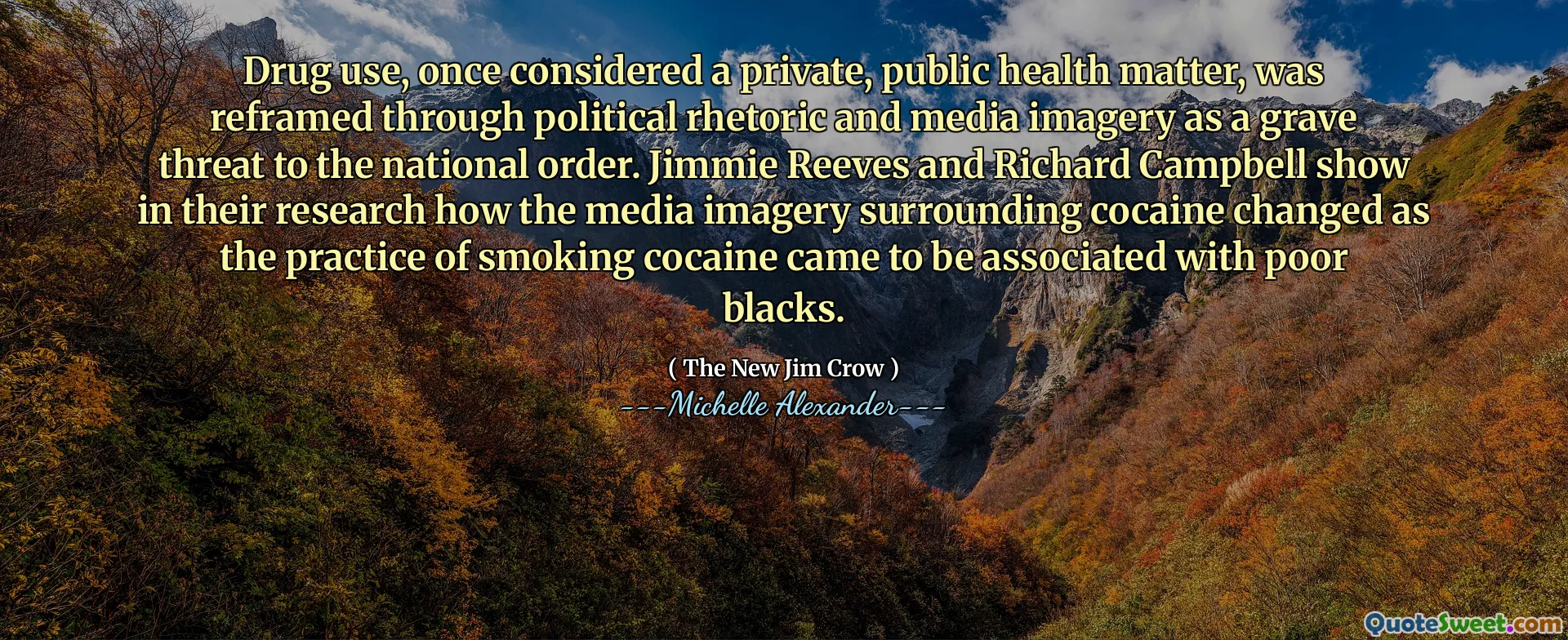
Drug use, once considered a private, public health matter, was reframed through political rhetoric and media imagery as a grave threat to the national order. Jimmie Reeves and Richard Campbell show in their research how the media imagery surrounding cocaine changed as the practice of smoking cocaine came to be associated with poor blacks.
This quote highlights the significant transformation in the societal perception of drug use over time. Initially viewed as a private health concern, drug use was later politicized and sensationalized through media portrayals, framing it as a dire threat to national stability and security. This shift can be understood within the broader context of racial and social biases, particularly as the media began associating crimes related to cocaine use with Black communities. Such framing contributed to the stigmatization of these groups and fueled policies like harsher law enforcement measures. The research by Reeves and Campbell underscores how media imagery is not merely a reflection of societal attitudes but also a powerful tool that can influence public perception and policy. Through their analysis of cocaine portrayal, it becomes evident that racial connotations played a crucial role in shaping the narrative, leading to disproportionate criminalization and marginalization of poor Black populations. This example serves as a case study for understanding how media portrayal can reinforce systemic inequalities and justify punitive measures against marginalized groups. Recognizing these patterns encourages a critical view of media influence and policy decisions, urging us to question and challenge how narratives are constructed around social issues such as drug use, race, and social justice.
(The New Jim Crow) - Michelle Alexander







